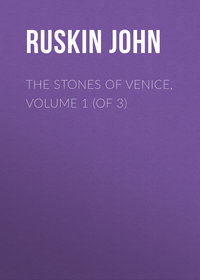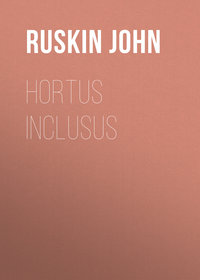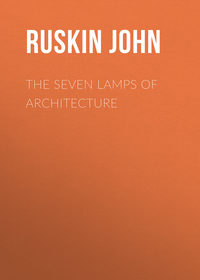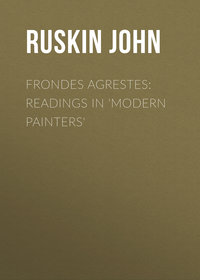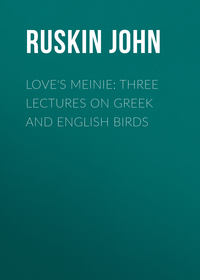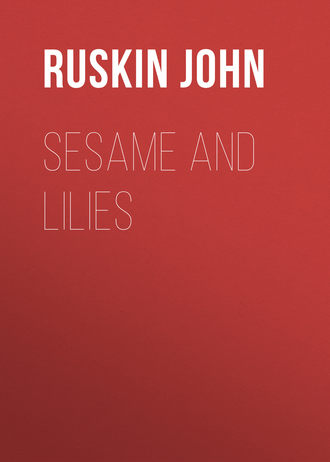
Sesame and Lilies
But I have no words for the wonder with which I hear Kinghood still spoken of, even among thoughtful men, as if governed nations were a personal property, and might be bought and sold, or otherwise acquired, as sheep, of whose flesh their king was to feed, and whose fleece he was to gather; as if Achilles' indignant epithet of base kings, "people-eating," were the constant and proper title of all monarchs; and the enlargement of a king's dominion meant the same thing as the increase of a private man's estate! Kings who think so, however powerful, can no more be the true kings of the nation than gadflies are the kings of a horse; they suck it, and may drive it wild, but do not guide it. They, and their courts, and their armies are, if one could see clearly, only a large species of marsh mosquito, with bayonet proboscis and melodious, band-mastered trumpeting, in the summer air; the twilight being, perhaps, sometimes fairer, but hardly more wholesome, for its glittering mists of midge companies. The true kings, meanwhile, rule quietly, if at all, and hate ruling; too many of them make "il gran rifiuto;" and if they do not, the mob, as soon as they are likely to become useful to it, is pretty sure to make ITS "gran rifiuto" of THEM.
Yet the visible king may also be a true one, some day, if ever day comes when he will estimate his dominion by the FORCE of it,—not the geographical boundaries. It matters very little whether Trent cuts you a cantel out here, or Rhine rounds you a castle less there. But it does matter to you, king of men, whether you can verily say to this man, "Go," and he goeth; and to another, "Come," and he cometh. Whether you can turn your people, as you can Trent—and where it is that you bid them come, and where go. It matters to you, king of men, whether your people hate you, and die by you, or love you, and live by you. You may measure your dominion by multitudes, better than by miles; and count degrees of love- latitude, not from, but to, a wonderfully warm and infinite equator.
Measure!—nay, you cannot measure. Who shall measure the difference between the power of those who "do and teach," and who are greatest in the kingdoms of earth, as of heaven—and the power of those who undo, and consume—whose power, at the fullest, is only the power of the moth and the rust? Strange! to think how the Moth-kings lay up treasures for the moth; and the Rust-kings, who are to their peoples' strength as rust to armour, lay up treasures for the rust; and the Robber-kings, treasures for the robber; but how few kings have ever laid up treasures that needed no guarding—treasures of which, the more thieves there were, the better! Broidered robe, only to be rent; helm and sword, only to be dimmed; jewel and gold, only to be scattered;—there have been three kinds of kings who have gathered these. Suppose there ever should arise a Fourth order of kings, who had read, in some obscure writing of long ago, that there was a Fourth kind of treasure, which the jewel and gold could not equal, neither should it be valued with pure gold. A web made fair in the weaving, by Athena's shuttle; an armour, forged in divine fire by Vulcanian force; a gold to be mined in the very sun's red heart, where he sets over the Delphian cliffs;—deep-pictured tissue;—impenetrable armour;—potable gold!—the three great Angels of Conduct, Toil, and Thought, still calling to us, and waiting at the posts of our doors, to lead us, with their winged power, and guide us, with their unerring eyes, by the path which no fowl knoweth, and which the vulture's eye has not seen! Suppose kings should ever arise, who heard and believed this word, and at last gathered and brought forth treasures of—Wisdom—for their people?
Think what an amazing business THAT would be! How inconceivable, in the state of our present national wisdom! That we should bring up our peasants to a book exercise instead of a bayonet exercise!– organise, drill, maintain with pay, and good generalship, armies of thinkers, instead of armies of stabbers!—find national amusement in reading-rooms as well as rifle-grounds; give prizes for a fair shot at a fact, as well as for a leaden splash on a target. What an absurd idea it seems, put fairly in words, that the wealth of the capitalists of civilised nations should ever come to support literature instead of war!
Have yet patience with me, while I read you a single sentence out of the only book, properly to be called a book, that I have yet written myself, the one that will stand (if anything stand), surest and longest of all work of mine.
"It is one very awful form of the operation of wealth in Europe that it is entirely capitalists' wealth which supports unjust wars. Just wars do not need so much money to support them; for most of the men who wage such, wage them gratis; but for an unjust war, men's bodies and souls have both to be bought; and the best tools of war for them besides, which make such war costly to the maximum; not to speak of the cost of base fear, and angry suspicion, between nations which have not grace nor honesty enough in all their multitudes to buy an hour's peace of mind with; as, at present, France and England, purchasing of each other ten millions sterling worth of consternation, annually (a remarkably light crop, half thorns and half aspen leaves, sown, reaped, and granaried by the 'science' of the modern political economist, teaching covetousness instead of truth). And, all unjust war being supportable, if not by pillage of the enemy, only by loans from capitalists, these loans are repaid by subsequent taxation of the people, who appear to have no will in the matter, the capitalists' will being the primary root of the war; but its real root is the covetousness of the whole nation, rendering it incapable of faith, frankness, or justice, and bringing about, therefore, in due time, his own separate loss and punishment to each person."
France and England literally, observe, buy PANIC of each other; they pay, each of them, for ten thousand-thousand-pounds'-worth of terror, a year. Now suppose, instead of buying these ten millions' worth of panic annually, they made up their minds to be at peace with each other, and buy ten millions' worth of knowledge annually; and that each nation spent its ten thousand thousand pounds a year in founding royal libraries, royal art galleries, royal museums, royal gardens, and places of rest. Might it not be better somewhat for both French and English?
It will be long, yet, before that comes to pass. Nevertheless, I hope it will not be long before royal or national libraries will be founded in every considerable city, with a royal series of books in them; the same series in every one of them, chosen books, the best in every kind, prepared for that national series in the most perfect way possible; their text printed all on leaves of equal size, broad of margin, and divided into pleasant volumes, light in the hand, beautiful, and strong, and thorough as examples of binders' work; and that these great libraries will be accessible to all clean and orderly persons at all times of the day and evening; strict law being enforced for this cleanliness and quietness.
I could shape for you other plans, for art-galleries, and for natural history galleries, and for many precious—many, it seems to me, needful—things; but this book plan is the easiest and needfullest, and would prove a considerable tonic to what we call our British constitution, which has fallen dropsical of late, and has an evil thirst, and evil hunger, and wants healthier feeding. You have got its corn laws repealed for it; try if you cannot get corn laws established for it, dealing in a better bread;—bread made of that old enchanted Arabian grain, the Sesame, which opens doors;– -doors not of robbers', but of Kings' Treasuries.
LECTURE II.—LILIES OF QUEENS' GARDENS
"Be thou glad, oh thirsting Desert; let the desert be made cheerful, and bloom as the lily; and the barren places of Jordan shall run wild with wood."—ISAIAH XXXV. I. (Septuagint.)
It will, perhaps, be well, as this Lecture is the sequel of one previously given, that I should shortly state to you my general intention in both. The questions specially proposed to you in the first, namely, How and What to Read, rose out of a far deeper one, which it was my endeavour to make you propose earnestly to yourselves, namely, WHY to Read. I want you to feel, with me, that whatever advantages we possess in the present day in the diffusion of education and of literature, can only be rightly used by any of us when we have apprehended clearly what education is to lead to, and literature to teach. I wish you to see that both well-directed moral training and well-chosen reading lead to the possession of a power over the ill-guided and illiterate, which is, according to the measure of it, in the truest sense, KINGLY; conferring indeed the purest kingship that can exist among men: too many other kingships (however distinguished by visible insignia or material power) being either spectral, or tyrannous;—spectral—that is to say, aspects and shadows only of royalty, hollow as death, and which only the "likeness of a kingly crown have on:" or else—tyrannous—that is to say, substituting their own will for the law of justice and love by which all true kings rule.
There is, then, I repeat—and as I want to leave this idea with you, I begin with it, and shall end with it—only one pure kind of kingship; an inevitable and eternal kind, crowned or not; the kingship, namely, which consists in a stronger moral state, and a truer thoughtful state, than that of others; enabling you, therefore, to guide, or to raise them. Observe that word "State;" we have got into a loose way of using it. It means literally the standing and stability of a thing; and you have the full force of it in the derived word "statue"—"the immovable thing." A king's majesty or "state," then, and the right of his kingdom to be called a state, depends on the movelessness of both:– without tremor, without quiver of balance; established and enthroned upon a foundation of eternal law which nothing can alter, nor overthrow.
Believing that all literature and all education are only useful so far as they tend to confirm this calm, beneficent, and THEREFORE kingly, power—first, over ourselves, and, through ourselves, over all around us,—I am now going to ask you to consider with me farther, what special portion or kind of this royal authority, arising out of noble education, may rightly be possessed by women; and how far they also are called to a true queenly power,—not in their households merely, but over all within their sphere. And in what sense, if they rightly understood and exercised this royal or gracious influence, the order and beauty induced by such benignant power would justify us in speaking of the territories over which each of them reigned, as "Queens' Gardens."
And here, in the very outset, we are met by a far deeper question, which—strange though this may seem—remains among many of us yet quite undecided in spite of its infinite importance.
We cannot determine what the queenly power of women should be, until we are agreed what their ordinary power should be. We cannot consider how education may fit them for any widely extending duty, until we are agreed what is their true constant duty. And there never was a time when wilder words were spoken, or more vain imagination permitted, respecting this question—quite vital to all social happiness. The relations of the womanly to the manly nature, their different capacities of intellect or of virtue, seem never to have been yet estimated with entire consent. We hear of the "mission" and of the "rights" of Woman, as if these could ever be separate from the mission and the rights of Man—as if she and her lord were creatures of independent kind, and of irreconcilable claim. This, at least, is wrong. And not less wrong—perhaps even more foolishly wrong (for I will anticipate thus far what I hope to prove)—is the idea that woman is only the shadow and attendant image of her lord, owing him a thoughtless and servile obedience, and supported altogether in her weakness by the pre-eminence of his fortitude.
This, I say, is the most foolish of all errors respecting her who was made to be the helpmate of man. As if he could be helped effectively by a shadow, or worthily by a slave!
Let us try, then, whether we cannot get at some clear and harmonious idea (it must be harmonious if it is true) of what womanly mind and virtue are in power and office, with respect to man's; and how their relations, rightly accepted, aid and increase the vigour and honour and authority of both.
And now I must repeat one thing I said in the last lecture: namely, that the first use of education was to enable us to consult with the wisest and the greatest men on all points of earnest difficulty. That to use books rightly, was to go to them for help: to appeal to them, when our own knowledge and power of thought failed: to be led by them into wider sight,—purer conception,—than our own, and receive from them the united sentence of the judges and councils of all time, against our solitary and unstable opinion.
Let us do this now. Let us see whether the greatest, the wisest, the purest-hearted of all ages are agreed in any wise on this point: let us hear the testimony they have left respecting what they held to be the true dignity of woman, and her mode of help to man.
And first let us take Shakespeare.
Note broadly in the outset, Shakespeare has no heroes;—he has only heroines. There is not one entirely heroic figure in all his plays, except the slight sketch of Henry the Fifth, exaggerated for the purposes of the stage; and the still slighter Valentine in The Two Gentlemen of Verona. In his laboured and perfect plays you have no hero. Othello would have been one, if his simplicity had not been so great as to leave him the prey of every base practice round him; but he is the only example even approximating to the heroic type. Coriolanus—Caesar—Antony stand in flawed strength, and fall by their vanities;—Hamlet is indolent, and drowsily speculative; Romeo an impatient boy; the Merchant of Venice languidly submissive to adverse fortune; Kent, in King Lear, is entirely noble at heart, but too rough and unpolished to be of true use at the critical time, and he sinks into the office of a servant only. Orlando, no less noble, is yet the despairing toy of chance, followed, comforted, saved by Rosalind. Whereas there is hardly a play that has not a perfect woman in it, steadfast in grave hope, and errorless purpose: Cordelia, Desdemona, Isabella, Hermione, Imogen, Queen Catherine, Perdita, Sylvia, Viola, Rosalind, Helena, and last, and perhaps loveliest, Virgilia, are all faultless; conceived in the highest heroic type of humanity.
Then observe, secondly,
The catastrophe of every play is caused always by the folly or fault of a man; the redemption, if there be any, is by the wisdom and virtue of a woman, and, failing that, there is none. The catastrophe of King Lear is owing to his own want of judgment, his impatient vanity, his misunderstanding of his children; the virtue of his one true daughter would have saved him from all the injuries of the others, unless he had cast her away from him; as it is, she all but saves him.
Of Othello I need not trace the tale;—nor the one weakness of his so mighty love; nor the inferiority of his perceptive intellect to that even of the second woman character in the play, the Emilia who dies in wild testimony against his error:-
"Oh, murderous coxcomb! what should such a foolDo with so good a wife?"In Romeo and Juliet, the wise and brave stratagem of the wife is brought to ruinous issue by the reckless impatience of her husband. In Winter's Tale, and in Cymbeline, the happiness and existence of two princely households, lost through long years, and imperilled to the death by the folly and obstinacy of the husbands, are redeemed at last by the queenly patience and wisdom of the wives. In Measure for Measure, the foul injustice of the judge, and the foul cowardice of the brother, are opposed to the victorious truth and adamantine purity of a woman. In Coriolanus, the mother's counsel, acted upon in time, would have saved her son from all evil; his momentary forgetfulness of it is his ruin; her prayer, at last granted, saves him—not, indeed, from death, but from the curse of living as the destroyer of his country.
And what shall I say of Julia, constant against the fickleness of a lover who is a mere wicked child?—of Helena, against the petulance and insult of a careless youth?—of the patience of Hero, the passion of Beatrice, and the calmly devoted wisdom of the "unlessoned girl," who appears among the helplessness, the blindness, and the vindictive passions of men, as a gentle angel, bringing courage and safety by her presence, and defeating the worst malignities of crime by what women are fancied most to fail in,– precision and accuracy of thought.
Observe, further, among all the principal figures in Shakespeare's plays, there is only one weak woman—Ophelia; and it is because she fails Hamlet at the critical moment, and is not, and cannot in her nature be, a guide to him when he needs her most, that all the bitter catastrophe follows. Finally, though there are three wicked women among the principal figures—Lady Macbeth, Regan, and Goneril- -they are felt at once to be frightful exceptions to the ordinary laws of life; fatal in their influence also, in proportion to the power for good which they have abandoned.
Such, in broad light, is Shakespeare's testimony to the position and character of women in human life. He represents them as infallibly faithful and wise counsellors,—incorruptibly just and pure examples—strong always to sanctify, even when they cannot save.
Not as in any wise comparable in knowledge of the nature of man,– still less in his understanding of the causes and courses of fate,– but only as the writer who has given us the broadest view of the conditions and modes of ordinary thought in modern society, I ask you next to receive the witness of Walter Scott.
I put aside his merely romantic prose writings as of no value, and though the early romantic poetry is very beautiful, its testimony is of no weight, other than that of a boy's ideal. But his true works, studied from Scottish life, bear a true witness; and in the whole range of these, there are but three men who reach the heroic type19 —Dandie Dinmont, Rob Roy, and Claverhouse; of these, one is a border farmer; another a freebooter; the third a soldier in a bad cause. And these touch the ideal of heroism only in their courage and faith, together with a strong, but uncultivated, or mistakenly applied, intellectual power; while his younger men are the gentlemanly play-things of fantastic fortune, and only by aid (or accident) of that fortune, survive, not vanquish, the trials they involuntarily sustain. Of any disciplined, or consistent character, earnest in a purpose wisely conceived, or dealing with forms of hostile evil, definitely challenged and resolutely subdued, there is no trace in his conceptions of young men. Whereas in his imaginations of women,—in the characters of Ellen Douglas, of Flora MacIvor, Rose Bradwardine, Catherine Seyton, Diana Vernon, Lilias Redgauntlet, Alice Bridgenorth, Alice Lee, and Jeanie Deans,—with endless varieties of grace, tenderness, and intellectual power, we find in all a quite infallible sense of dignity and justice; a fearless, instant, and untiring self-sacrifice, to even the appearance of duty, much more to its real claims; and, finally, a patient wisdom of deeply-restrained affection, which does infinitely more than protect its objects from a momentary error; it gradually forms, animates, and exalts the characters of the unworthy lovers, until, at the close of the tale, we are just able, and no more, to take patience in hearing of their unmerited success.
So that, in all cases, with Scott as with Shakespeare, it is the woman who watches over, teaches, and guides the youth; it is never, by any chance, the youth who watches over, or educates, his mistress.
Next take, though more briefly, graver testimony—that of the great Italians and Greeks. You know well the plan of Dante's great poem— that it is a love-poem to his dead lady; a song of praise for her watch over his soul. Stooping only to pity, never to love, she yet saves him from destruction—saves him from hell. He is going eternally astray in despair; she comes down from heaven to his help, and throughout the ascents of Paradise is his teacher, interpreting for him the most difficult truths, divine and human; and leading him, with rebuke upon rebuke, from star to star.
I do not insist upon Dante's conception; if I began I could not cease: besides, you might think this a wild imagination of one poet's heart. So I will rather read to you a few verses of the deliberate writing of a knight of Pisa to his living lady, wholly characteristic of the feeling of all the noblest men of the thirteenth, or early fourteenth, century, preserved among many other such records of knightly honour and love, which Dante Rossetti has gathered for us from among the early Italian poets.
"For lo! thy law is passedThat this my love should manifestly beTo serve and honour thee:And so I do; and my delight is full,Accepted for the servant of thy rule."Without almost, I am all rapturous,Since thus my will was setTo serve, thou flower of joy, thine excellence:Nor ever seems it anything could rouseA pain or a regret.But on thee dwells my every thought and sense;Considering that from thee all virtues spreadAs from a fountain head,—THAT IN THY GIFT IS WISDOM'S BEST AVAIL,AND HONOUR WITHOUT FAIL,With whom each sovereign good dwells separate,Fulfilling the perfection of thy state."Lady, since I conceivedThy pleasurable aspect in my heart,MY LIFE HAS BEEN APARTIN SHINING BRIGHTNESS AND THE PLACE OF TRUTH;Which till that time, good sooth,Groped among shadows in a darken'd place,Where many hours and daysIt hardly ever had remember'd good.But now my servitudeIs thine, and I am full of joy and rest.A man from a wild beastThou madest me, since for thy love I lived."You may think perhaps a Greek knight would have had a lower estimate of women than this Christian lover. His spiritual subjection to them was indeed not so absolute; but as regards their own personal character, it was only because you could not have followed me so easily, that I did not take the Greek women instead of Shakespeare's; and instance, for chief ideal types of human beauty and faith, the simple mother's and wife's heart of Andromache; the divine, yet rejected wisdom of Cassandra; the playful kindness and simple princess-life of happy Nausicaa; the housewifely calm of that of Penelope, with its watch upon the sea; the ever patient, fearless, hopelessly devoted piety of the sister, and daughter, in Antigone; the bowing down of Iphigenia, lamb-like and silent; and finally, the expectation of the resurrection, made clear to the soul of the Greeks in the return from her grave of that Alcestis, who, to save her husband, had passed calmly through the bitterness of death.
Now I could multiply witness upon witness of this kind upon you if I had time. I would take Chaucer, and show you why he wrote a Legend of Good Women; but no Legend of Good Men. I would take Spenser, and show you how all his fairy knights are sometimes deceived and sometimes vanquished; but the soul of Una is never darkened, and the spear of Britomart is never broken. Nay, I could go back into the mythical teaching of the most ancient times, and show you how the great people,—by one of whose princesses it was appointed that the Lawgiver of all the earth should be educated, rather than by his own kindred;—how that great Egyptian people, wisest then of nations, gave to their Spirit of Wisdom the form of a Woman; and into her hand, for a symbol, the weaver's shuttle; and how the name and the form of that spirit, adopted, believed, and obeyed by the Greeks, became that Athena of the olive-helm, and cloudy shield, to faith in whom you owe, down to this date, whatever you hold most precious in art, in literature, or in types of national virtue.
But I will not wander into this distant and mythical element; I will only ask you to give its legitimate value to the testimony of these great poets and men of the world,—consistent, as you see it is, on this head. I will ask you whether it can be supposed that these men, in the main work of their lives, are amusing themselves with a fictitious and idle view of the relations between man and woman;– nay, worse than fictitious or idle; for a thing may be imaginary, yet desirable, if it were possible: but this, their ideal of woman, is, according to our common idea of the marriage relation, wholly undesirable. The woman, we say, is not to guide, nor even to think for herself. The man is always to be the wiser; he is to be the thinker, the ruler, the superior in knowledge and discretion, as in power.


